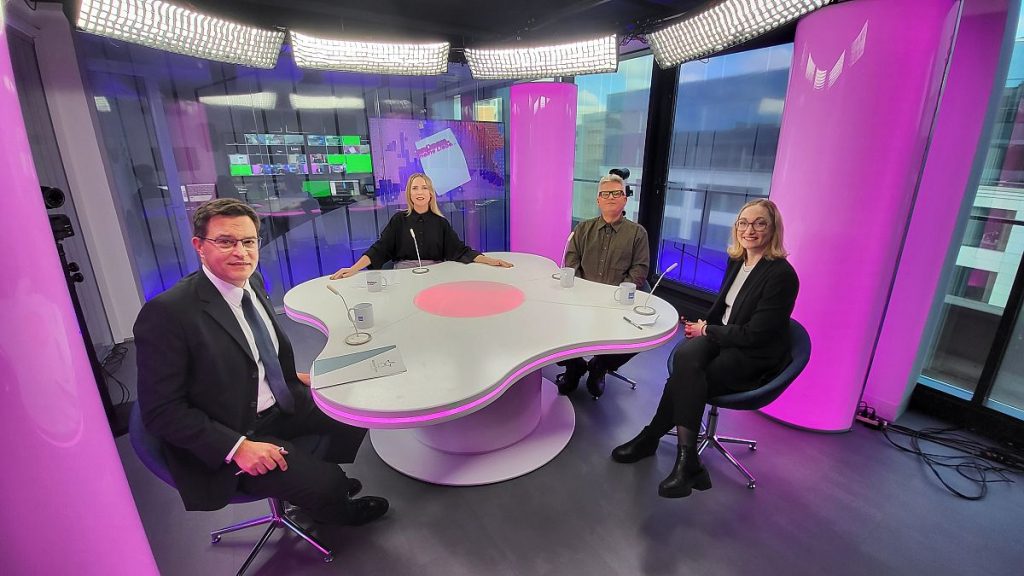In a recent episode, the panel discussed the results of parliamentary elections in Austria, where the far-right Freedom Party claimed victory under the leadership of Herbert Kickl. Kickl, who promotes a “fortress Austria” mentality, aims to become the country’s next chancellor, although he may face challenges as other parties are hesitant to work with him. Sophie Pornschlegel attributed the success of right-wing and populist parties to rising inequality, noting that this disparity often leads to support for far-right ideologies. On the other hand, Bruno Waterfield described the election results as a ‘populist civic revolt,’ suggesting that it signaled a wake-up call in European politics.
The panel also addressed the ongoing EU-UK talks, with Prime Minister Keir Starmer traveling to Brussels in an effort to establish a new chapter in European relations. Bruno Waterfield, who has covered Brexit extensively, emphasized the importance of the detailed work that lies ahead as regular summits between the two sides now begin. Pornschlegel stressed the need for the UK government to work closely with Brussels and avoid attempting to negotiate bilateral deals with individual member states. The discussions surrounding the future relationship between the EU and the UK highlight the complexities and challenges that lie ahead in forging a mutually beneficial partnership.
The far-right’s success in the Austrian elections and the ongoing negotiations between the EU and the UK are part of a larger trend reflecting the changing political landscape in Europe. The rise of right-wing and populist parties, fueled in part by economic inequalities, has implications for the future of the European Union and its relationships with member states. Waterfield’s characterization of the election results as a ‘populist civic revolt’ underscores the need for greater understanding and engagement with these shifts in political dynamics across the continent. As Europe grapples with these developments, the importance of collaboration and open dialogue between nations becomes increasingly evident.
The current political climate in Europe presents both challenges and opportunities for the future of the Union. By addressing the underlying causes of rising inequality and social discontent, policymakers can work towards creating a more inclusive and equitable society that is less susceptible to the appeal of far-right ideologies. The EU-UK talks serve as a test case for how nations can navigate complex relationships and negotiate mutually beneficial agreements in a post-Brexit era. As the European Union and its member states continue to navigate these shifting political currents, the need for cooperation, transparency, and a shared commitment to democratic values remains paramount.
The panel’s discussion on the Austrian elections and the EU-UK talks highlights the interconnected nature of politics in Europe and the importance of collaboration in addressing shared challenges. By engaging in open dialogue and working towards common goals, nations can build stronger, more resilient partnerships that promote stability and prosperity across the continent. As Europe evolves and adapts to changing political dynamics, the lessons learned from events like the Austrian elections and Brexit negotiations can inform future decision-making and shape the trajectory of the European project. Ultimately, by embracing diversity, fostering dialogue, and upholding democratic principles, Europe can navigate the complexities of the modern political landscape and build a more inclusive and united future for all its citizens.


